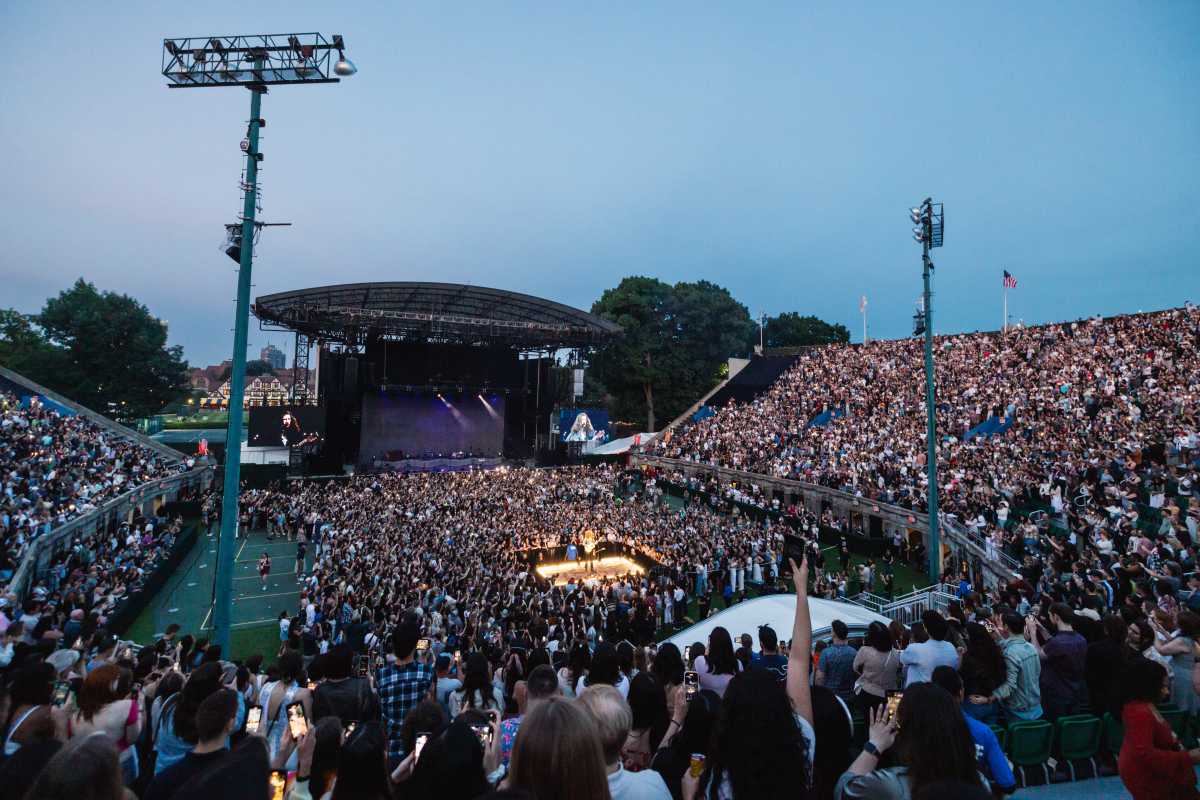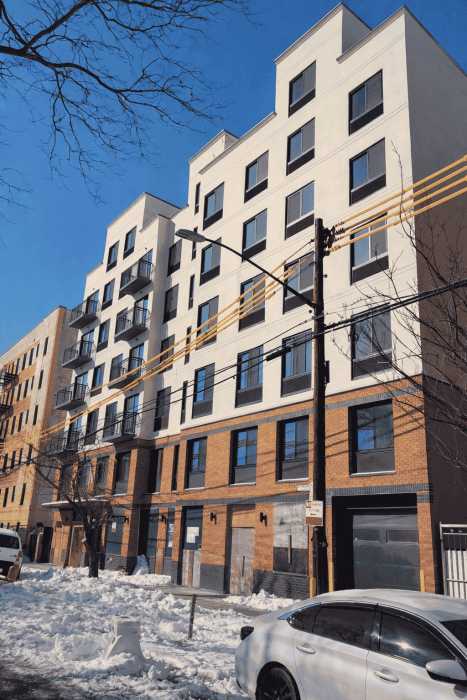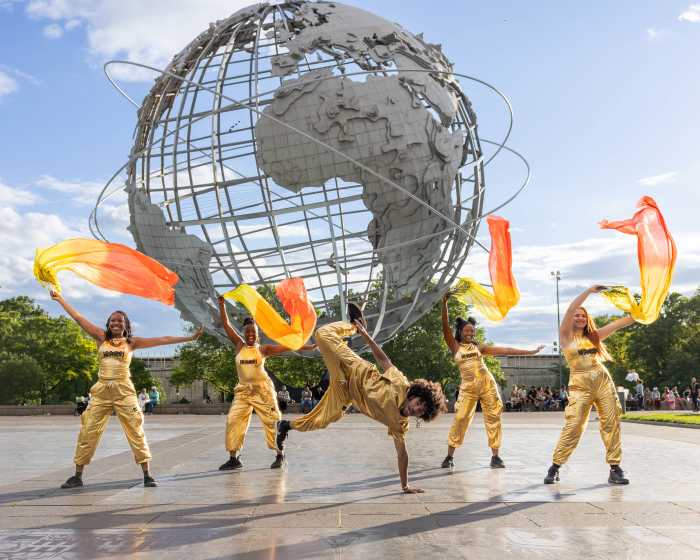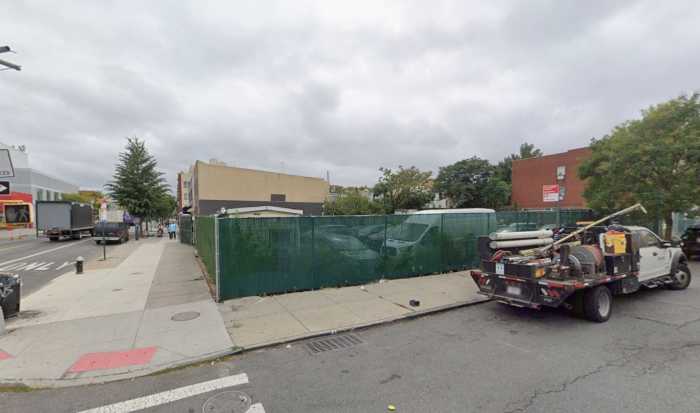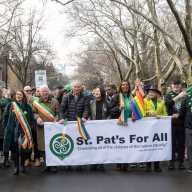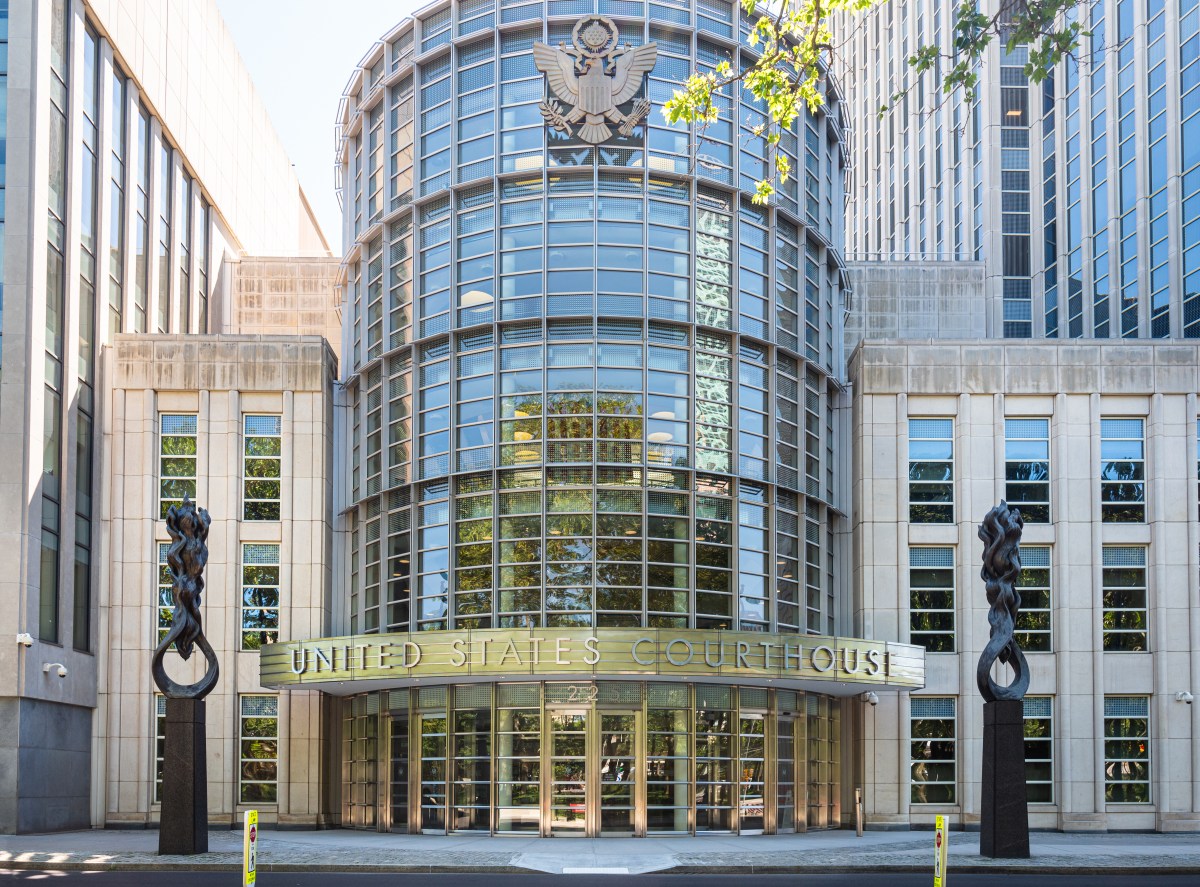A Forest Hills homeowners group has filed a motion for a preliminary injunction against the operators of Forest Hills Stadium due to the “harms caused” by the yearly concert series at the stadium.
Forest Hills Garden Corp (FHGC), a homeowners association whose members live by the venue, has filed a motion against West Side Tennis Club (WSTC), which owns the stadium and leases the venue to concert operators. The motion aims to immediately prohibit WSTC from licensing, authorizing, or allowing any concerts to take place at the stadium.
The motion for a preliminary injunction comes in the midst of FHGC’s ongoing court battle with WSTC, where the homeowners association aims to prohibit WSTC from holding any concerts during the school year or on weeknights—as well as any concerts that exceed noise level standards set out in the city’s Noise Code. FHGC is also seeking to prevent WSTC and Tiebreaker Productions, which operates concerts at Forest Hills Stadium, from holding events that place concert-related equipment, materials or operations on private streets, including ticket queues, barricades, ticket booths and security personnel.
FHGC said it is taking legal action due to the “severe and irreparable harm that the concerts are causing to the community,” stating that concerts generate excessive noise late at night and impair residents’ access to their homes.
Anthony Oprisiu, president of the FHGC Board of Directors, noted that a “record-breaking 37 events took place at the stadium during the 2024 season,” stating that the events disrupted the daily lives of residents who live near the stadium.
“The noise from the concerts sends vibrations through residents’ houses for hours at a time, and the crowds make it impossible for residents to enjoy their homes and neighborhood,” Oprisiu said in a statement.
FHGC outlined a litany of complaints in the motion, stating that concertgoers frequently trespass and urinate on private property. The homeowner’s association additionally alleged that illegal sales of nitrous oxide cartridges take place outside the venues and accused concertgoers of leaving trash on the streets or in private yards.
Additionally, the group accused private security guards of blocking access to private streets during events at the venue.
Oprisiu urged the courts to uphold the motion and “protect the community from further significant and irreparable harm.”
“The concerts are disrupting our residents’ lives,” Oprisiu said. “We are simply asking the Court to enforce the law.”
Akiva Shapiro, an attorney representing WSTC, accused Oprisiu of lying to FHGC members and wasting the organization’s money on “needless litigation.”
Shapiro pointed to the fact that Queens County Supreme Court Judge Joseph J. Esposito recently dismissed five of seven claims brought against West Side Tennis Club by FHGC, including claims of trespassing and zoning violations. Esposito did not dismiss claims of public and private nuisance, with both claims set to be determined at some point in 2025.
However, Shapiro said previously that he is confident that the court will find in favor of WSTC in the two cases that have not yet been dismissed.
Shapiro described FHGC’s decision to file a motion for a preliminary injunction against WSTC as a “PR gambit masquerading as an injunction motion.”
“This rogue homeowner’s association is now ignoring prior court orders while asking the Court to shut down the Stadium completely, which would be catastrophic for the Forest Hills economy, destroy local businesses, deprive the Gardens Corp itself of its largest source of revenue, and put community members out of their jobs,” Shapiro said in a statement.
“All of Mr. Oprisiu’s lies can’t erase the overwhelming good the Forest Hills Stadium does for the community, the Stadium’s close coordination with City agencies at every turn, and the more than 25,000 signatures of support for the Stadium on a recent petition.”
The motion is the latest in a series of disputes between FHGC and the operators of Forest Hills Stadium since May 2023, when FHGC first filed a number of claims against the stadium.
Last month, Shapiro accused FHGC of “side-stepping” the courts in response to Esposito’s ruling. This came after attorneys representing the Garden Corp. sent a letter to the NYPD, threatening legal action if police continued issuing permits for the stadium’s 2025 concert season.
On Nov. 14, FHGC’s lawyers addressed a letter to Michael Gerber, the NYPD’s deputy commissioner of legal matters, outlining several grievances regarding policing plans at the stadium. The letter also warned of potential legal action if the NYPD persisted in issuing sound amplification permits for the 2025 concert season and implementing a program to close private streets on event days.
FHGC alleged that the NYPD’s actions over the past two years have been “unlawful,” stating that the issuance of sound amplification permits undermines the purpose of New York City’s Administrative Code, which seeks to “prevent any activity that ‘disturbs the public peace.”
The letter further contended that FHGC did not issue a license to the West Side Tennis Club, Tiebreaker, or the NYPD to close the streets surrounding the stadium for the 2023 and 2024 seasons. Lawyers representing FHGC wrote that the homeowners association owns the streets surrounding the stadium, giving it the power to issue licenses for street closures
The attorneys concluded the letter by stating that FHGC reserves “all legal remedies for addressing the city’s actions,” accusing the NYPD of “seizing private property to facilitate one entity’s commercial endeavors.”
Shapiro strongly rebuked the letter, describing the document as “false and defamatory.”
“The Club and Tiebreaker deeply regret that FHGC is now dragging the NYPD into this morass through FHGC’s threats of further litigation against the NYPD; strongly object to FHGC’s preposterous claims that any of the NYPD’s actions to date have been ‘unlawful,” Shapiro wrote in a letter to Geber.
Shapiro further stated his hope that the NYPD would not be “cowed into submission by an angry but frivolous letter” from FHGC.
In a statement issued last month, Shapiro described FHGC’s letter as a “blatant attempt” to circumvent Esposito’s decision to dismiss five of the seven claims brought against Forest Hills Stadium.
“The Forest Hills Gardens Corporation’s letter to the NYPD is a blatant attempt to sidestep court orders after numerous judges have instructed the homeowners association board to abide by the NYPD’s public safety directives,” Shapiro said in a statement.
Meanwhile, Esposito dismissed five claims in October, including a Breach of Declaration claim, which cited a 1913 declaration of land ownership where the historic stadium and surrounding residences exist today.
Esposito also ruled that FHGC failed to establish that the music festivals are a “noxious, offensive or dangerous trade or business that must be enjoined.”
Attorneys representing Forest Hills Stadium took the dismissal of the majority of claims as a win.

